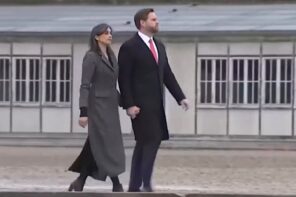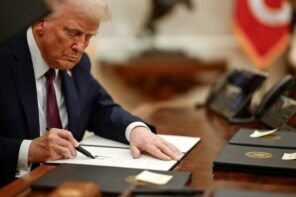I have spent the past several days, in light of my previous essay, trying to discern what precise effect the Beijing Opening Ceremonies were intended to elicit, what their elaborate choreography was designed to instill in their viewers — whether in the stadium or in the television audience. In order to answer that question, a certain amount of historical situating is in order.
One of the most influential, if not the most influential, Opening Ceremonies in the Modern period (at least since the 1936 Berlin Olympics and its extraordinary innovation, the creation of the Olympic Torch and Relay), were those of the 1988 Seoul Olympics. The Koreans devoted six full years to their planning and choreography, and hired a veritable army of several hundred artists in the initial planning stages. The result was tour de force, a rich panoply of color, texture and sound. Elaborately costumed armies marched into the Olympic stadium in battle array as drummers sounded out enormous several-ton traditional martial drums (but here, the forces clashed, exchanged banners, then departed in peace). That gesture toward traditional instrumentation and martial music was but one of the many implicit debts the Chinese ceremonies owed to their Korean predecessor.
What was most striking about the Seoul Opening Ceremonies was the way in which they artfully played with indigenous form, in ways that would clearly not be intelligible to a non-Korean viewing audience, then danced effortlessly back to the West — most notably with the cheerleaders, pom-poms and rock-n-roll theme songs with which their Ceremonies concluded. One of the first images in these Seoul Opening ceremonies was a symbolic “east meets west” scenario, one in which Greek-toga’d westerners met the traditionally garbed representatives of this storied Asian peninsula. “East meets west”: that was the ritual key in Seoul. The Koreans boldly choreographed any number of events that lent themselves to Orientalizing stereotypes, but then, as I say, doubled back on themselves to show how very fluent they were in western forms of ritual representation as well.
These Opening ceremonies have been clearly invoked many times since — in Barcelona, in Atlanta, and even in Sydney, where gestures to indigenous ritual form took center stage. In Athens, by contrast, something else was staged, a bold celebration of the Greekness of these Olympic Games, and a marvelous historical walking tour through four thousand years of Greek history, culminating in Olympics 2004.
That is what seems so very different about the Beijing ceremonies. There was no attempt at a synthesis, no self-consciousness to the display of how an “eastern” host country stages “western” Games. These ceremonies were unapologetically Chinese, not so much a matter of east meeting west, as east showing west a thing or two — about precision, about artistry, about synchronizing humanity in the mass. These ceremonies were admirably wedded to the other striking feature of the television coverage of the Games thus far — namely how uncritically a certain narrative about the new China and its raw economic power has silenced any other narrative that might reasonably be explored in reference to the country and its Games.
By contrast, there were many other stories at Seoul. First and foremost, the Olympics themselves were believed to be in crisis. Montreal had virtually bankrupted itself in preparation for the 1976 Games (Athens did so again in 2004). The 1980 Moscow Games were marred by the US-led boycott in protest over the Soviet invasion of Afghanistan (the current troubles in Georgia offer a chilling parallel). The 1984 Los Angles games were also marred by a Soviet-led boycott, a boycott in which the Chinese dramatically refused to participate. And then came 1988. One of the most shocking, and risky, moments on those opening ceremonies was when five sets of parachutists dropped out of the sky in colored uniforms, creating an aerial version of the five Olympic rings, then drifting slowly into a stadium renowned for its treacherous wind currents. Who in the world was elite enough to do such a thing? US and Soviet Special Forces, among others, working together in an Olympic choreography of world peace. The next year, the Berlin Wall came down, and a new era commenced.
The Beijing Opening Ceremonies had an odd way of ignoring all of this — the history, the politics, the West itself. And in this, they offered a chilling reminder of how univocal the regime in fact is, how much is still fractious about our relations, and how syrupy celebrations of Chinese precision tell us nothing at all. In a statement astonishing for its vacuousness, the US President “reminded” Bob Costas in an Olympic interview that we will “agree with the Chinese about some things and not others.” He also insisted that we must remember that our relationship is “complex.”
There has been no gesture to complexity in Beijing, as there was so brilliantly in Seoul. And that, it seems to me, is the real story of these Olympic Games.










